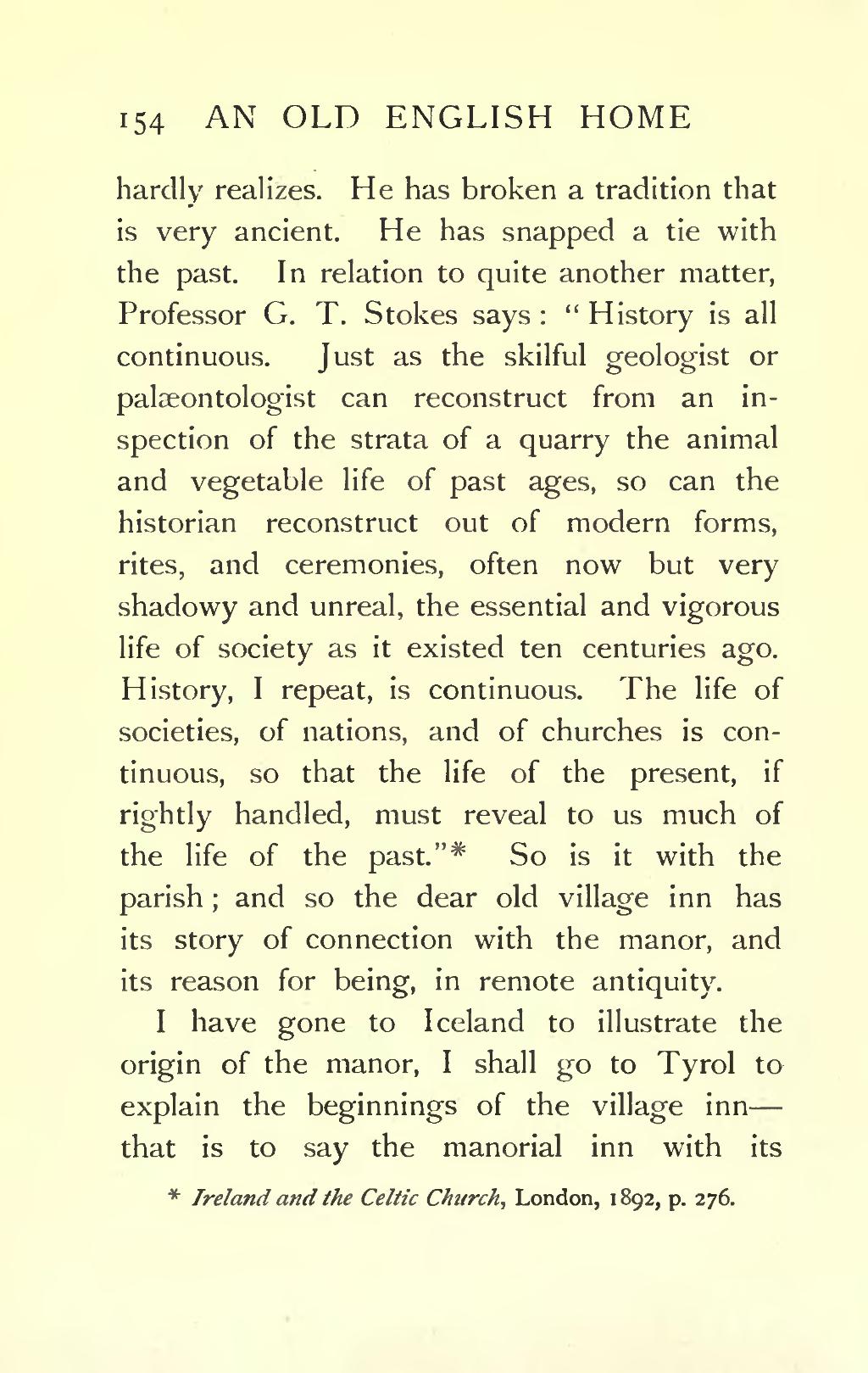hardly realizes. He has broken a tradition that is very ancient. He has snapped a tie with the past. In relation to quite another matter, Professor G. T. Stokes says: "History is all continuous. Just as the skilful geologist or palæontologist can reconstruct from an inspection of the strata of a quarry the animal and vegetable life of past ages, so can the historian reconstruct out of modern forms, rites, and ceremonies, often now but very shadowy and unreal, the essential and vigorous life of society as it existed ten centuries ago. History, I repeat, is continuous. The life of societies, of nations, and of churches is continuous, so that the life of the present, if rightly handled, must reveal to us much of the life of the past."[1] So is it with the parish; and so the dear old village inn has its story of connection with the manor, and its reason for being, in remote antiquity.
I have gone to Iceland to illustrate the origin of the manor, I shall go to Tyrol to explain the beginnings of the village inn—that is to say the manorial inn with its
- ↑ Ireland and the Celtic Church, London, 1892, p. 276.
